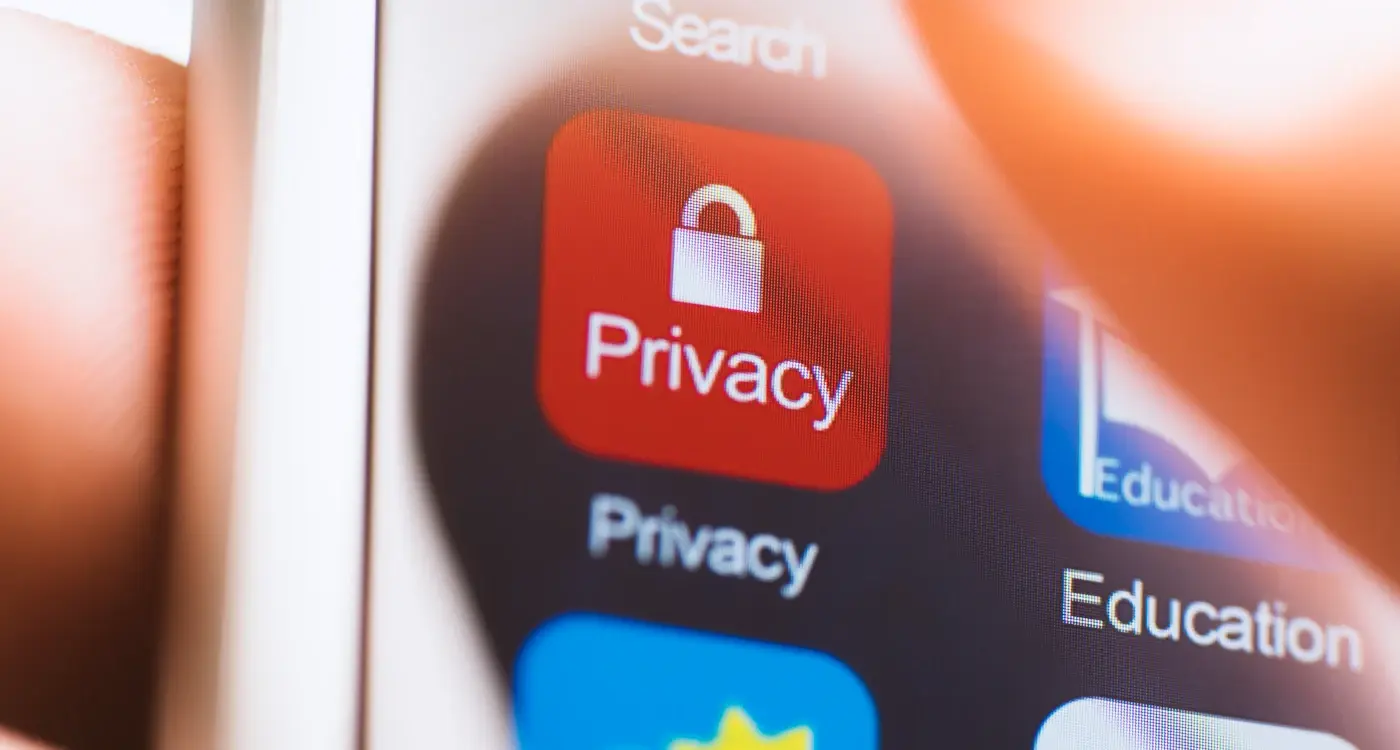How Often Should I Update My App's Terms Of Service?
Most mobile app owners update their terms of service only when something goes wrong—and that's usually too late. Legal maintenance for your mobile app isn't just about avoiding lawsuits; it's about building trust with your users and staying compliant with ever-changing regulations. After helping dozens of clients navigate these murky waters, I've learned that the question isn't whether you need to update your terms, but when and how often.
Your app's terms of service are like a living document that needs regular attention. New privacy laws pop up regularly, your app features evolve, and user expectations shift. What worked when you launched might leave you vulnerable today. The challenge is finding the right balance—update too frequently and you'll annoy users; wait too long and you might face legal headaches.
The best time to review your terms of service was six months ago. The second best time is now.
Throughout this guide, we'll explore the triggers that should prompt an update, from new data protection regulations to simple feature additions. You'll learn to spot the warning signs that your user agreements need attention and develop a practical schedule that keeps your mobile app legally sound without overwhelming your users. Let's start by understanding what actually constitutes a terms of service update.
Understanding Terms of Service Updates
Terms of Service updates—let's be honest, most people skip right past them without a second thought. But as an app developer, you need to understand what they actually are and why they matter for your business. Your Terms of Service is basically the contract between you and your users; it sets out the rules for how people can use your app and what happens if things go wrong.
Think of your Terms of Service as a living document rather than something you write once and forget about. Your app will evolve, your business will grow, and laws will change—all of these mean your terms need updating too. I've seen too many developers treat their terms like a fire-and-forget document, only to run into problems later when they realise their terms don't cover new features or comply with updated regulations.
What Makes Terms of Service Change
Several things can trigger the need for an update. New features in your app might require different permissions or data handling practices. Changes in privacy laws (like GDPR) can make your existing terms legally insufficient. Sometimes it's simpler stuff—maybe you've changed your company name or moved to a different country. Even updating your refund policy or adding new payment methods can require terms updates.
The key is staying proactive rather than reactive. Regular reviews help you catch issues before they become problems.
Legal Requirements That Trigger Updates
After working with hundreds of mobile app developers over the years, I've seen the panic that sets in when new laws come into effect. The reality is that legal changes don't wait for your convenience—they happen when they happen, and your app needs to comply whether you're ready or not.
The most common trigger for urgent updates comes from data protection laws. When GDPR launched, we had clients scrambling to update their terms overnight. Privacy regulations change frequently, and each one can require significant changes to how you handle user data in your mobile app.
Key Legal Changes That Demand Action
Different types of legal changes affect your user agreements in different ways. Some require immediate action, whilst others give you a bit more breathing room:
- Data protection and privacy law changes
- Consumer rights legislation updates
- Digital services regulations
- Age verification requirements
- Accessibility compliance standards
- Payment processing regulations
Regional differences make this even trickier. What's legal in one country might not be in another, and if your app operates internationally, you'll need to stay on top of multiple jurisdictions. I always tell clients to set up Google Alerts for relevant legal terms—it's saved more than one project from compliance headaches.
Keep a legal maintenance calendar marking when major regulations typically get reviewed or updated. Most privacy laws follow annual review cycles, making it easier to plan ahead.
Business Changes That Require Updates
Your business isn't static—it grows, changes direction, and evolves over time. Each significant shift in how you operate can mean your terms of service need updating too. I've worked with countless companies over the years, and the ones that stay on top of these changes save themselves headaches down the line.
Major Business Structure Changes
When your company structure changes, your terms must reflect this. If you're a sole trader who incorporates into a limited company, that's a big one. Your liability changes, your legal obligations shift, and users need to know who they're actually dealing with. Same goes for mergers, acquisitions, or if you sell your app to another company entirely.
Service and Pricing Model Updates
Switching from a free app to a paid model? Adding subscription tiers? These changes affect the fundamental relationship with your users. Your original terms probably don't cover the new payment structure, refund policies, or what happens when someone cancels their subscription.
- Company name or ownership changes
- New business partnerships or third-party integrations
- Changes to your service offerings or core functionality
- Shifts in pricing models or payment methods
- Geographic expansion into new markets
- Changes to customer support processes
The key is staying proactive rather than reactive. Update your terms when you plan these changes, not after they've already happened and caused confusion.
User Privacy and Data Protection Updates
Privacy laws change faster than I can keep track of sometimes—and I've been in this mobile app game for over eight years now! When new data protection regulations roll out or existing ones get updated, your app's terms of service need to reflect these changes straight away. GDPR was a massive wake-up call for many app developers; suddenly everyone realised they needed to be crystal clear about how user data gets collected, stored, and used.
Your mobile app might collect anything from basic contact details to location data, and each type of information comes with its own legal requirements. If you're adding new tracking features, integrating third-party analytics, or changing how you handle user passwords, these updates must be documented in your user agreements. It's not just about ticking boxes—users have real rights regarding their personal information.
The cost of getting privacy wrong isn't just financial; it's about losing the trust that took years to build with your users
Legal maintenance becomes particularly tricky when you're operating across different countries. What works in the UK might not fly in California, and Australian privacy laws have their own quirks. When working with app developers to determine your highest value data, privacy considerations should be at the forefront of those discussions.
Feature Updates and Their Legal Impact
Adding new features to your app is exciting—but it can also create legal headaches if you're not careful. Every time you introduce something that changes how users interact with your app, you need to think about whether your terms of service still cover you properly.
Take payment systems, for example. If you start accepting payments when you didn't before, your terms need updating immediately. Same goes for user-generated content like reviews or comments; social features like sharing or messaging; location tracking; push notifications; and third-party integrations with services like Facebook or Google.
When New Features Create New Risks
I've seen developers launch a simple photo app, then add sharing features without updating their terms. Suddenly they're dealing with copyright issues they never anticipated. The original terms didn't cover what happens when users share copyrighted images—a massive legal gap that could have been avoided.
Even seemingly harmless features can have implications. Adding a simple rating system means you need terms covering defamation, fake reviews, and content moderation. It's not just about the feature itself; it's about all the ways people might misuse it.
The Golden Rule
Here's what I tell all my clients: if a feature changes what users can do, what data you collect, or how people interact with each other through your app, update your terms before launch. Don't wait until problems arise—prevent them from happening in the first place.
Creating an Update Schedule
Right then, let's talk about creating a proper update schedule for your mobile app's terms of service. After years of working with different clients, I've learned that the best approach is to build reviews into your regular business rhythm rather than scrambling when legal maintenance becomes urgent.
Most successful apps benefit from quarterly reviews of their user agreements. This gives you enough time to spot changes that might affect your terms without being too frequent that it becomes a burden. During these reviews, you'll want to check for any business changes, new features, or legal requirements that have cropped up since your last update.
When to Schedule Extra Reviews
Some situations call for immediate attention outside your regular schedule:
- Before launching major new features
- When changing payment systems or pricing models
- After receiving legal advice about compliance issues
- When expanding to new countries or regions
- Following significant privacy law changes
Set calendar reminders for your quarterly reviews and assign someone specific to own this process—don't let it fall through the cracks!
The key is consistency. Pick dates that work for your team and stick to them. I've seen too many apps get caught off guard because they didn't have a proper review system in place.
Communicating Changes to Users
Getting your terms of service updated is only half the battle—you need to tell your users about it too. I've seen countless apps push through changes without properly informing their users, which creates confusion and mistrust. Not exactly what you want when you're trying to build a loyal user base!
The most straightforward approach is sending a notification through your app or via email. Keep the message simple and explain what's changed in plain English. Nobody wants to wade through legal jargon just to understand if they can still use your app the same way. Include a direct link to the updated terms and highlight the key changes that actually affect how people use your app.
Timing Your Communication
Give users reasonable notice before the changes take effect—usually 30 days works well for most updates. This gives people time to review the changes and decide if they're happy to continue using your app. For major changes that affect how you handle user data or significantly alter the service, you might want to consider longer notice periods.
Don't bury the notification in a sea of other messages. Make it clear and prominent so users actually see it. Some apps require users to actively accept the new terms before they can continue using the service, which ensures everyone's properly informed about the changes.
Conclusion
After eight years of helping clients navigate the complexities of mobile app development, I can tell you that keeping your terms of service current isn't just about ticking legal boxes—it's about protecting your business and maintaining trust with your users. Most apps benefit from reviewing their user agreements every six months, but the real answer depends on how quickly your app evolves and what regulations apply to your industry.
The key is building a system that works for your team. Whether that's setting calendar reminders, linking updates to your development sprints, or working with legal professionals who understand mobile apps, consistency beats perfection every time. I've seen too many developers panic when they realise their terms haven't been touched in two years, only to discover they needed updates months ago.
Your users deserve transparency about how their data is handled and what they're agreeing to when they download your app. By staying on top of legal maintenance and communicating changes clearly, you're not just avoiding potential headaches—you're building a foundation of trust that can make or break your app's success. The mobile app landscape changes fast, but with the right approach to maintaining your user agreements, you'll be ready for whatever comes next.
Share this
Subscribe To Our Learning Centre
You May Also Like
These Related Guides

How Do Privacy Laws Change App Approval Requirements?

Do I Need a Privacy Policy for My Mobile App?



